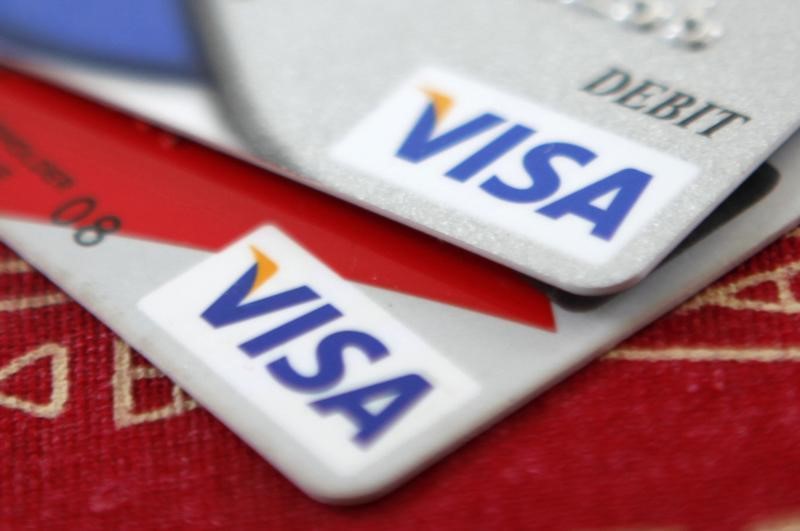By Nandita Bose
CHICAGO (Reuters) - In an effort to reduce counterfeit and credit card fraud more than 200 million payment cards have been issued with embedded computer chips in the U.S., ahead of a Oct. 1 deadline for the switch to such cards, according to the Smart Card Alliance.
Credit card companies have set the October deadline which will require U.S. consumers to carry a new kind of card and retailers across the nation to upgrade payment terminals.
Randy Vanderhoof, executive director at the Smart Card Alliance which counts Visa Inc (NYSE:V), MasterCard Inc, American Express Co (NYSE:AXP) and Discover Financial Services (NYSE:DFS) as its members told Reuters there are many more chip cards in the hands of consumers than there are merchant locations that are equipped to accept them.
"Many people have multiple cards in their wallet," Vanderhook said.
"So even if people get one card in their wallet that's their primary shopping card then it doesn't matter that there are still hundreds of thousands of other cards that have yet to be replaced."
The Alliance expects card companies to issue 600 million chip-enabled cards by 2015. The total number of payment cards in the U.S. stands at approximately 1.2 billion, which includes credit, debit, charge and other forms of payment cards.
U.S. retailers are investing $8.65 billion for upgrading their payment terminals and some including Target Corp (NYSE:TGT) are prepared to accept the new cards. It is not entirely clear at the moment how many U.S. retailers have upgraded their payment terminals.
"Retailers are making an enormous investment in order to upgrade their terminals to accept these cards," said Brian Dodge, executive vice president of the Retail Industry Leaders Association.
"But the level of security in these cards is not what it should be and it is not equal to what is available in the rest of the world," Dodge said.
U.S. banks and card companies will not issue personal identification numbers (PINs) with the new credit cards, an additional security measure that would render stolen or lost cards virtually useless when making in-person purchases at a retail outlet.
Instead, they will stick with the present system of requiring signatures.
Analysts predict that credit card fraud at brick-and-mortar retailers will fall after the introduction of chip-enabled cards, but that online fraud will rise, as has happened in other countries using the technology.
Research and consulting firm Aite Group estimates U.S. online card fraud will more than double to $6.6 billion from $3.3 billion between 2015 and 2018.
(
